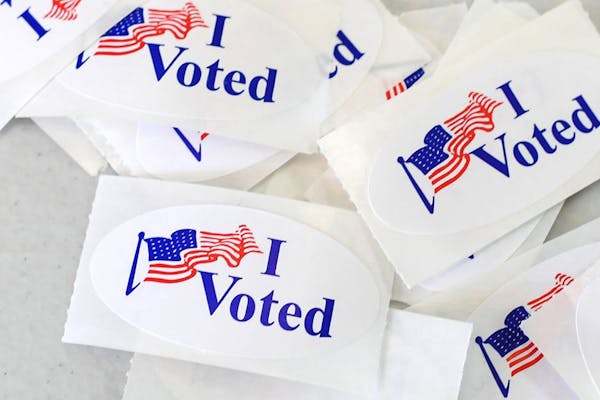Michael Weber is putting his faith in FedEx on Election Day.
A U.S. diplomat from the Twin Cities now working in Frankfurt, Germany, Weber and his wife mailed their absentee ballots six weeks ago, but last week they got confirmation that the ballots never made it to their local election office. With time running short and a new court ruling that could invalidate mail-in ballots received after the Nov. 3 election, they decided to express a new absentee ballot through FedEx. The ballots are now supposed to arrive Tuesday morning, but they might not know if they made it until after the election.
"I make sure to vote in every election, so it's pretty important to me to exercise that right," said Weber, who reported the problem to ProPublica's Electionland project. "It would be pretty big deal to me not to have a valid ballot in this election."
A panel of federal judges ruled Thursday that all mail-in ballots received after 8 p.m. on Election Day must be set aside for possible legal challenges, casting doubt on a state court agreement allowing officials to count ballots received as late as Nov. 10, as long as they are postmarked by Nov. 3.
Gov. Tim Walz and state election officials are now telling voters there's no time to mail in absentee ballots and they should instead drop them off at their local election office or vote in person.
But that's not an option for Minnesota voters who are in another state or overseas, including diplomats like Weber, students or active military personnel, some of whom are scrambling to make sure their votes are counted.
Secretary of State Steve Simon said a record 1,684,817 absentee ballots had been returned and accepted by Sunday. But 293,203 absentee ballots were still outstanding. State officials didn't have a breakdown of absentee ballots from out-of-state voters.
Simon said voters who are out of state should use expedited shipping through FedEx or UPS to get their ballots in by Tuesday, but he acknowledged that's not an ideal solution and it forces some to pay to make sure their vote is counted. That was part of their argument to the courts.
"You hate to have people do that. That seems to me to be a backdoor poll tax," Simon said on MPR News on Sunday. "Not everyone can make a simple correction that you or I can, being in Minnesota, and just alter our plans and go somewhere in our neighborhood or in town."
Among those who might be disenfranchised is Woodbury native and NBA hopeful Freddie Gillespie, who has spent the last several weeks in Miami preparing for the NBA draft and still hasn't received an absentee ballot he said he requested on Oct. 3. Gillespie, who was a political science major at Baylor, considers himself "civically active" and has voted absentee before, including in the August primary election. But after the court ruling last week, he doesn't think he will be able to vote in the general election.
"I'm just upset," Gillespie said. "I voted absentee a couple times before for a primary and some other elections and I don't understand how it's fair to set this new precedent five days before the election," he said. "I'm a pretty informed voter, but it looks like I won't be able to vote in this election."
Gillespie also said he thought about flying back to Minnesota for the day to cast a ballot in person, but his commitments involving workouts and interviews for the NBA draft make that difficult.
"If I had known more or had more preparation I would've requested a ballot in early September or late August," he said. "But I feel they're kind of moving the goalposts."
Walz, who held a get-out-the-vote news conference with faith leaders on Sunday, said the ruling requires absentee ballots that arrive after Election Day to be segregated. They will still be counted by state election officials, although the extended deadline remains under a Republican challenge.
Walz, a former National Guard member, said he was frustrated about the impact the court challenge could have on out-of-state voters, particularly military serving overseas.
"The idea someone who raised their hands to defend this nation and that sacred right would then be denied is simply wrong," he said, adding: "It should not be a lot of work to cast a vote in this country."
Republican critics of the state's Nov. 10 deadline said the deal bypassed state Legislature, could lead to fraud, and is likely unconstitutional.
Staff writer Chris Hine contributed to this report.
Briana Bierschbach • 651-925-5042
Twitter: @bbierschbach
Former DFL Senate Majority Leader Kari Dziedzic dies of cancer at age 62

How the Star Tribune is covering the 2024 election

Fact check: Walz and Vance made questionable claims during only VP debate

In Tim Walz's home city, opposing groups watch him debate on the national stage

